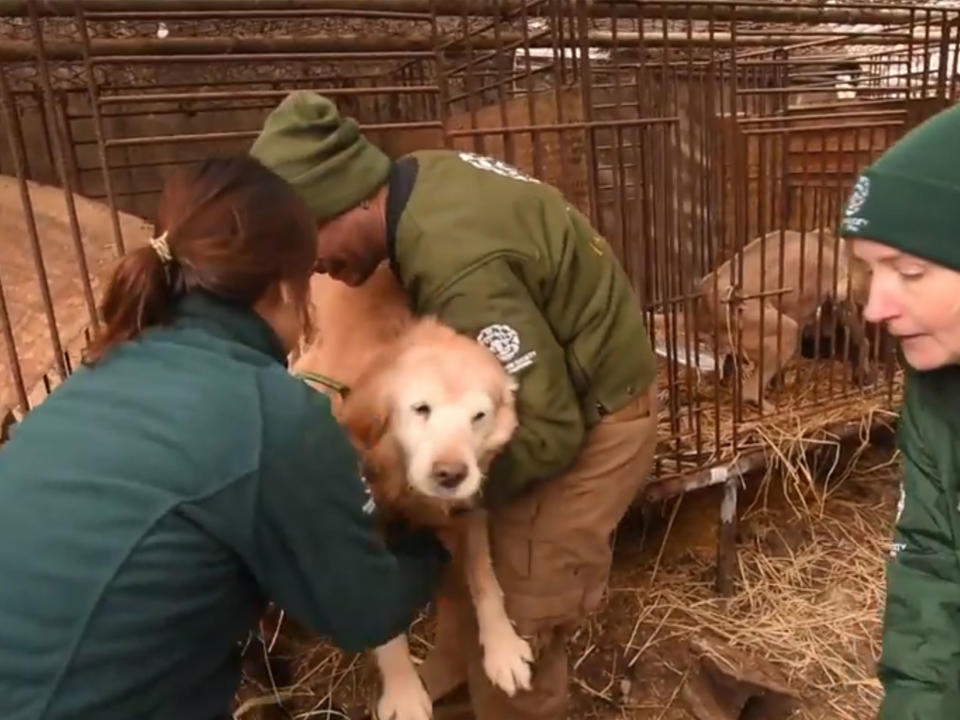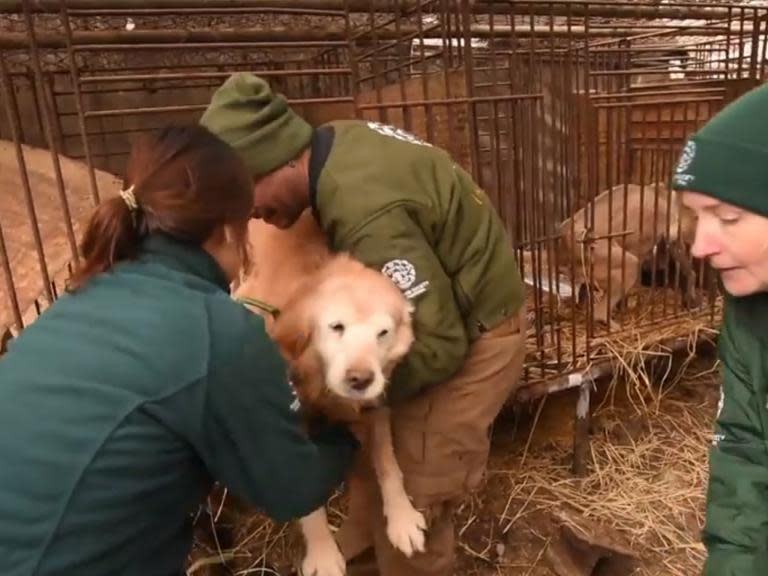Dozens of dogs rescued from South Korea meat farm
Campaigners have rescued more than 170 dogs being bred for meat in “horrific” conditions at a farm in South Korea.
The Humane Society International (HSI) has begun an international operation to transport the animals from the site in Namyangju, near Seoul, to safety in the UK and North America.
A total of 50 dogs have already been flown to Pearson Airport in Toronto, Canada, where they are in the process of being moved to shelters in Quebec.
Thirteen of the rescued dogs will be flown to shelters in the UK next year after completing quarantine.
Executive director of HSI Canada, Rebecca Aldworth, said: “This horrific dog meat farm is one of the worst HSI has ever seen and I am thrilled we are shutting it down for good.
“More than 170 dogs and puppies were intensively confined in cramped, filthy, barren wire cages positioned over months of accumulated waste.
“The dogs had no protection from the freezing temperatures. Many had open sores on their bodies and were severely emaciated because they received little food or water.”
The dog meat farm in Namyangju is one of an estimated 17,000 dog farms in South Korea breeding more than 2.5 million dogs a year for human consumption.
Most Koreans do not eat dog regularly and opposition to the practice is growing in the country, where production of the meat is neither classified as legal or illegal.
However, more than 30 million dogs are thought to be slaughtered across Asia for food each year.
One Korean dog farmer of 20 years, who only gave his name as Mr Kim, said he was planning to quit the profession after working with HIS.
He added: “I originally started farming dogs because I heard it would make money, but now in South Korea even in the summer the trade has reduced by about one third.
“I also have a young child, and the dog farming business won’t look good for her because she really likes dogs.”
All animals brought to the UK will be cared for by shelter All Dogs Matter, before being made available for adoption.

 Yahoo News
Yahoo News 

